The Case of Chidinma Adetshina: Xenophobia, Afrophobia of Nigeriaphobia?

When Chidinma Adetshina Vanessa, a 23-year-old South African pageant contestant, was announced as a finalist in the Miss South Africa competition, a heated debate about xenophobia and national identity was sparked all around the continent.
But why, you might wonder, would the advancement of a talented young woman cause such an uproar? Well, while Chidinma is a South African citizen, as her name might have already revealed to you, she is also of Nigerian descent—a fact that some South Africans could not accept. The idea that someone with Nigerian roots (well, half roots) might represent South Africa on the Miss Universe stage led to a flood of xenophobic comments and social media attacks, with some government officials even going as far as filing civil suits against the young model.
As this debate takes on a frankly ridiculous shape, it begs the question; is this just another case of xenophobia in South Africa, or is it something deeper—perhaps a case of Afrophobia within Africa, or even more specifically, Nigeriaphobia?
Xenophobia in Southern Africa
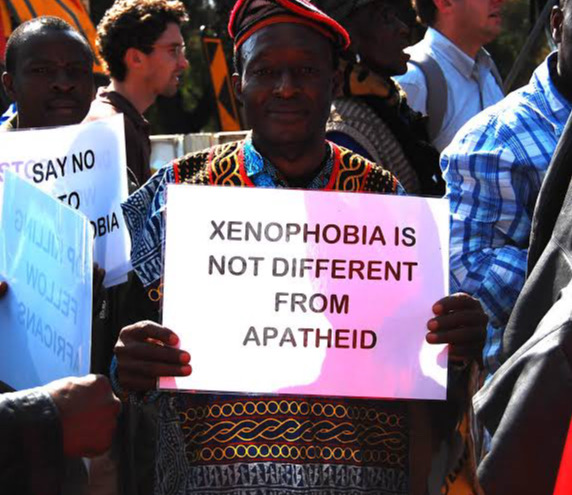
Unfortunately, Xenophobia in Southern Africa, particularly in South Africa, has been a longstanding issue, marked by violent outbreaks and deep-seated prejudice against foreign nationals, especially those from other African countries.
One of the most notorious examples of xenophobia in South Africa was the wave of violence that erupted in 2008, where at least 62 people were killed, including 21 South Africans, 11 Mozambicans, five Zimbabweans and three Somalis and thousands were injured. Known now as the May 2008 Riots, this incident was a shocking display of the animosity some South Africans hold toward foreigners, whom they often blame for the country’s economic woes, including high unemployment rates, crime, and strained public services.
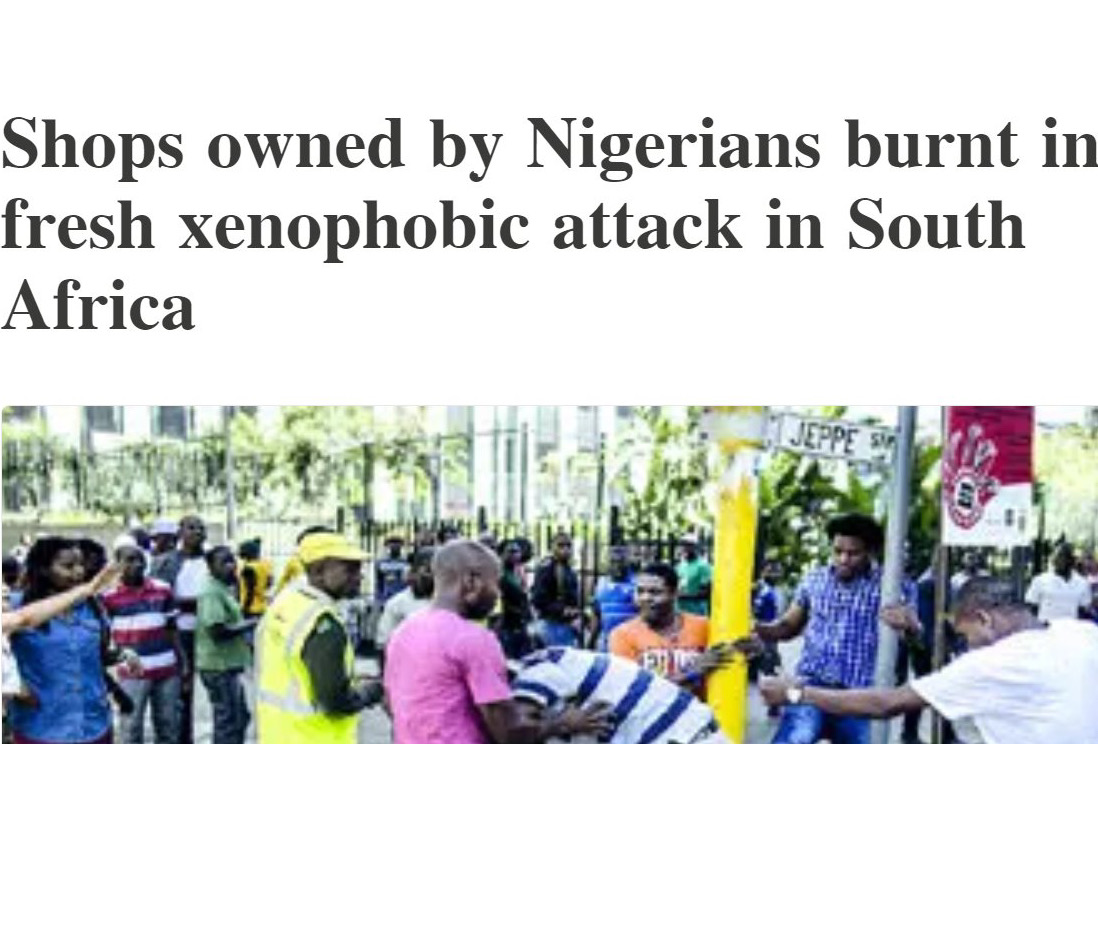
These tensions have not only persisted but have, at times, flared up with even greater intensity. For instance, in 2019, there were renewed attacks in Johannesburg and Pretoria, where around one hundred people attacked businesses owned by Nigerians and other foreign nationals, looting and burning them (I want you to take note of the keyword here “Nigerians” because we are going to circle back to it). In this event it was recorded that there were 68 attacks and 18 people died and more than 147 shops were looted.
Like the root cause of most African countries’ problems, the main reason for xenophobia in South Africa can be traced back to the apartheid era aka the lingering effects of colonialism. This was where the society was deeply divided along racial lines in South Africa. The end of apartheid did not fully dismantle these divisions; instead, they have been reconfigured.
The racial divide became a financial divide with the black population in South Africa—constituting 80% of South Africa’s total population—being on the poorer side. According to a study by Grieve Chelwa called “The Racial Wealth Gap in South Africa and the United States”, it is estimated that a typical black household in South Africa owns 5 percent of the wealth held by the typical White household, which becomes even more ridiculous when you find out it’s even less than that of a typical black household in the US which is at 6 percent.
The underlying socioeconomic challenges created an environment where competition for jobs, access to basic social services, and business opportunities intensified both within and between different communities. This economic competition has created fertile ground for xenophobic sentiments with black South Africans channeling their anger in the wrong place and turning against African migrants.
Many migrants in South Africa work in the informal sector, running small businesses in urban areas. South Africans often view these businesses as threats to their own economic survival, leading to conflicts and hostility. Politicians and local leaders have often exacerbated these feelings, using migrants as scapegoats for broader societal issues.
This was evident when figures like the Executive Mayor of Johannesburg, Herman Mashaba labeled foreign nationals as “criminals,” further inflaming public sentiment. Or comments made by the King Goodwill Zwelithini of the Zulu nation speaking at a rally in Pongola, in late March 2015 saying, “We urge all foreigners to pack their bags and leave.” And by foreigners, we know they don’t mean the white ones.
Afrophobia in South Africa
I believe after talking about xenophobia in South Africa, it’s clear to see its true name is Afrophobia. All the migrants mentioned earlier who were affected by xenophobic uprisings were all from African nations; Zimbabwe, Somali, Nigeria etc.
While xenophobia in South Africa is often framed as a general hostility toward foreigners, a closer examination reveals that it is predominantly directed against black Africans from other countries. So though it may have started as general disdain for other countries, at some point it became a deeper, more targeted prejudice—Afrophobia. This phenomenon is not unique to South Africa, it reflects a broader issue across the continent but that’s a topic for another day.
In a country where the black majority suffered under one of the most brutal systems of racial oppression—apartheid—it is paradoxical that black African migrants, who share not only racial and continental but also historical ties with black South Africans, are the ones bearing the brunt of xenophobic/afrophobic violence.
Meanwhile, white South Africans, who were the primary architects and beneficiaries of apartheid, are largely exempt from this hatred. I understand that decades of brain washing and white washing colonialism and colonialist influence have occurred but it’s still a hard pill to swallow.
Nigeriaphobia in South Africa
In the midst of this backdrop of xenophobia and Afrophobia, a new kind of hate seems to have emerged, particularly targeted at Nigerians—a phenomenon that could be termed “Nigeriaphobia.”
The tension between South Africans and Nigerians has been simmering for years but became particularly clear during the 2019 Durban Riots. According to the 2011 census, the number of Nigerians in South Africa was estimated at around 24,000. However, by 2016, this number had grown to over 30,000, and by 2023, it was revealed that more than 500,000 Nigerians were living in South Africa, with a significant portion residing illegally. This rapid increase in the Nigerian population has exacerbated existing tensions, leading to a targeted form of xenophobia.
The rise in anti-Nigerian sentiment is fueled by a mix of economic rivalry and negative stereotypes. Nigerians are often seen as economic competitors because they tend to build businesses and deep roots wherever they go and that includes South africa. What also exacerbates resentment, is the way Nigerians are portrayed in the media as fraudulent, thieving criminals. This opinion is not completely unfounded as there are many notable instances where Nigerians have been caught in such situations but is this the reality with all nigerians? Definitely not.
A grim example of Nigeriaphobia came to light with the recent killing of Prince Ebuka, a 43-year-old Nigerian national from Obosi, Anambra State. Ebuka was fatally assaulted by police in Danielskuil, Northern Cape, in a disturbing pattern of violence against Nigerians. The Nigerian Union in South Africa condemned the incident, highlighting similar cases of police abuse in Kimberley and Johannesburg.
According to reports, Ebuka’s wife was forced to flee their home to protect their child while officers assaulted Ebuka and coerced him into producing drugs he did not have. Despite employing drug detection methods, no evidence was found, and the brutality of the interrogation led to his death.
Another instance occurred in February 2024 when Nigeria’s authorities issued a call for caution amid what they described as “veiled threats” against their citizens living in South Africa, following the draw for the Africa Cup of Nations semifinal between the two countries.
The Nigerian High Commission in South Africa reported that some South Africans were making “inflammatory online comments” and warned Nigerian citizens to be cautious in their public behavior, particularly during the match. This incident underscores how social media platforms have become a battleground for expressing and escalating prejudices
Despite both countries acknowledging these issues, there have been no official actions taken to address them.
The Case of Chidinma Adetshina
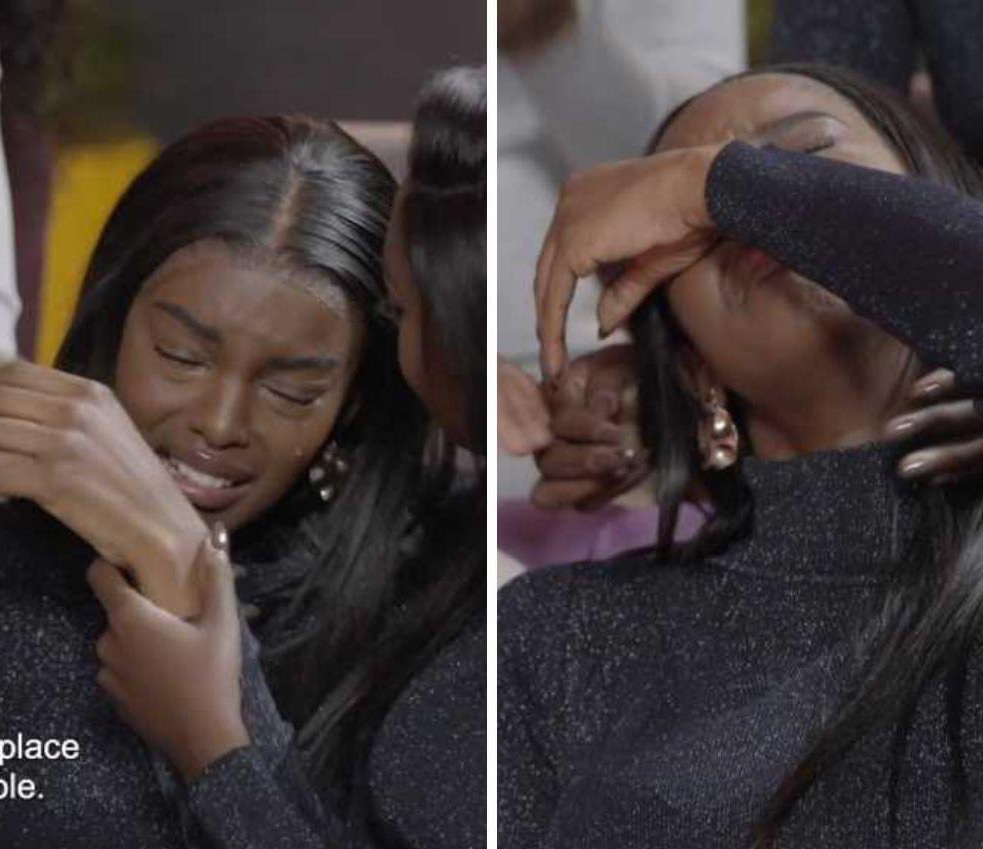
So how does Chidimma tie into all these phobias?
Well she’s a victim of these societal issues going unchecked. Chidinma’s entry into the Miss South Africa competition was met with a wave of backlash online not because of her abilities or achievements, but because of her heritage. Despite being born and raised in Soweto, South Africa, her Nigerian ancestry has been weaponized by those seeking to scapegoat her for broader social grievances. She was attacked mercilessly with hate comments and threats on social media with the hashtag #chidimmamustgo still trending on X.
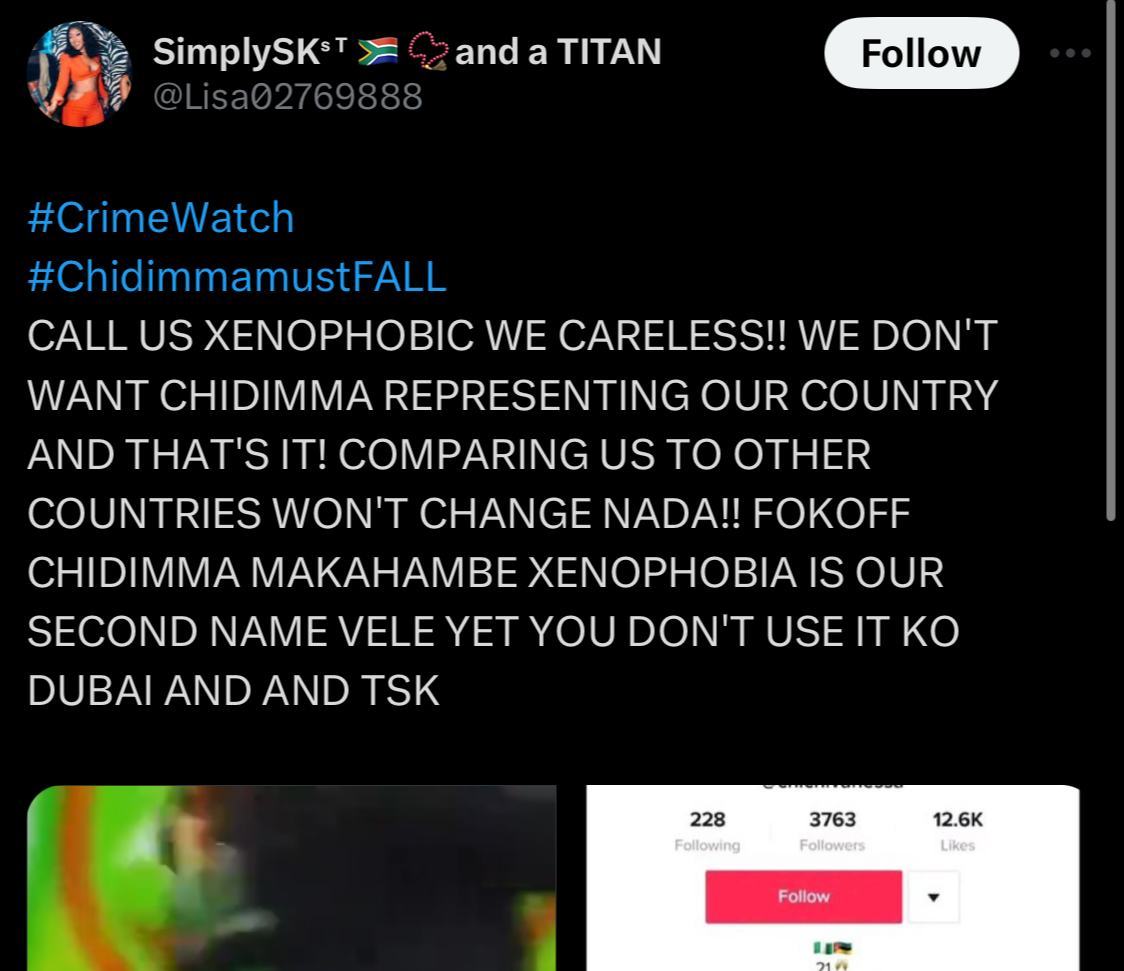
Explaining her background to the South African-based newspaper, Ms Adetshina said, “My dad is a proud Nigerian, and my mother was born and raised in South Africa but had Mozambique roots. My mom’s family still lives in Soweto, and I visit them occasionally.”
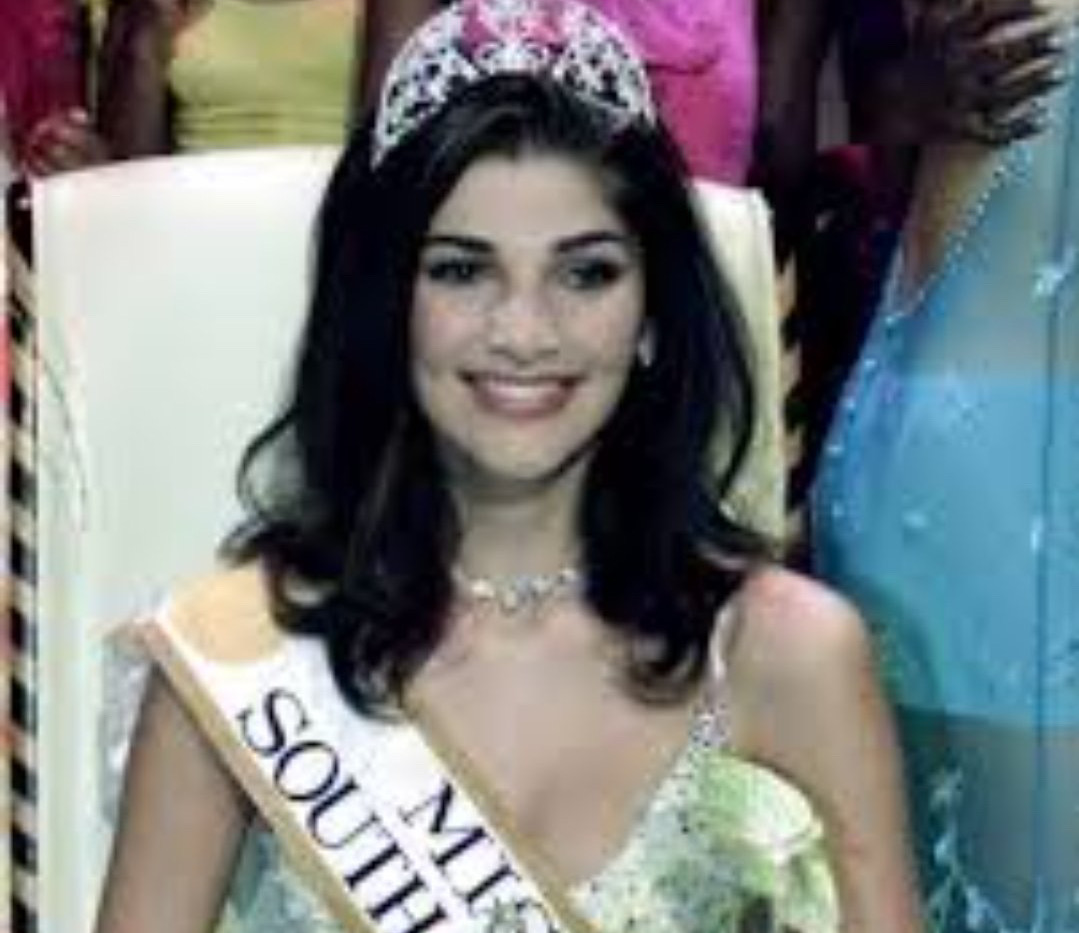
Her case is not an isolated one as in 2001, Vanessa Coutroulis, born to Portuguese-Angolan parents but she still ended up winning the competition.
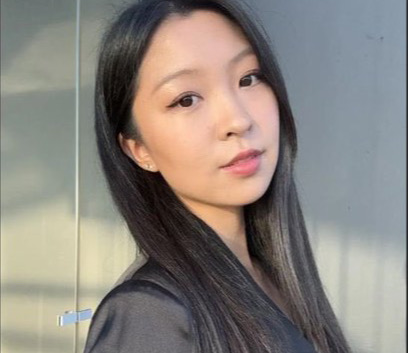
Similarly, Sherry Wang’s participation in the 2024 competition stirred controversy due to her Chinese heritage. Despite this scrutiny and it being her third attempt at the pageant, she won the fan vote and earned a place among the Top 25 contestants.
However, Chidinma’s situation escalated beyond mere scrutiny and negative comments. On August 5, Leon Schreiber, South Africa’s Minister of Home Affairs, announced an investigation following a request from Miss SA organizers regarding Chidinma’s citizenship. The Department of Home Affairs (DHA) alleged preliminary evidence of fraud and identity theft involving Chidinma’s mother, though it acknowledged that Chidinma herself, being a minor at the time, was not involved in these activities. The DHA’s statement revealed that a South African woman’s identity might have been stolen in the process.
I think it’s quite ironic that they managed to find something fraudulent connected to a Nigerian, even when the Nigerian in this story didn’t actually commit any crime. Regardless, Chidimma was forced to withdraw from the competition as under the South African Citizenship Act, an individual acquires citizenship if they are born in South Africa and at least one of their parents is a South African citizen. This also applies if they are adopted by a South African citizen or a permanent resident of South Africa.
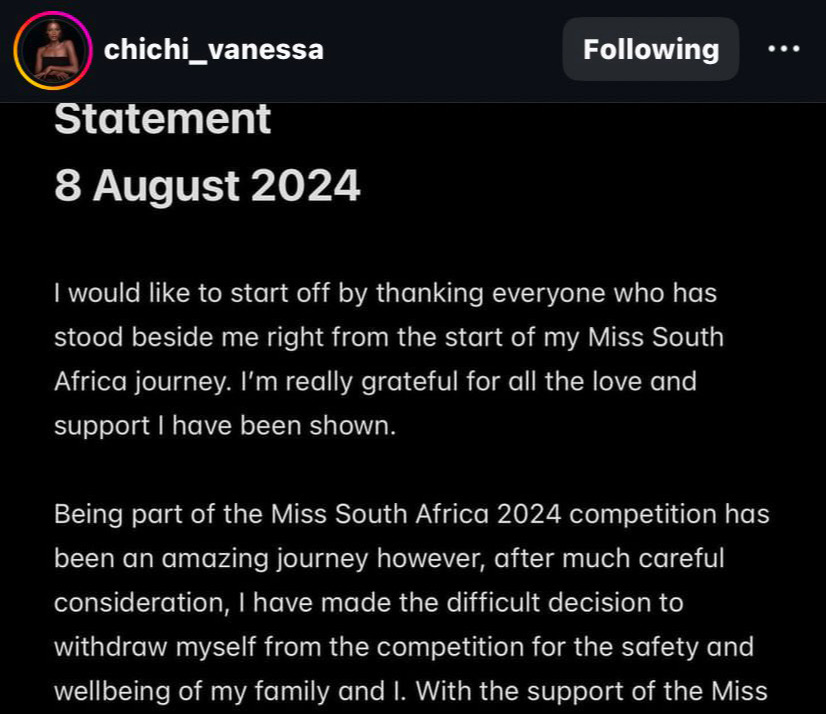
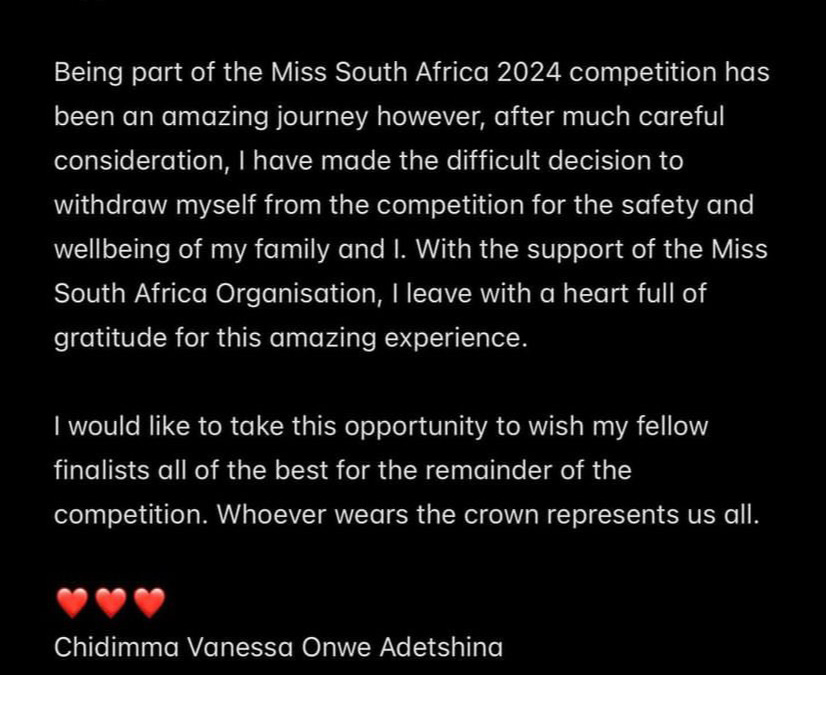
She wrote on Instagram, “I have made the difficult decision to withdraw myself from the competition for the safety and wellbeing of my family and I.”
Xenophobia, Afrophobia or Nigeriaphobia?

Tyla, Nara Smith and Charlize Theron, what do these three celebrities have in common? They are all South African. At least, they say they are. You see, Tyla was born in Johannesburg to parents of multi-heritage. Her father hails from Mauritius – an East African country – though he’s of Indian heritage, and Tyla’s mother is a South African native of Zulu descent with some Irish ancestry. And the 22 year old musician represents South Africa on the global stage.

And what about Nara Smith? Originally named Nara Aziza Pellman, she was born in Bloemfontein, South Africa, to a Mosotho mother and a German father. When Nara was an infant, her family relocated to Frankfurt, Germany, where she spent the rest of her childhood. In a TikTok video, she mentioned that both English and German are her native languages. While she leans more toward her German heritage, South Africans still embrace her as one of their own.

Then there’s Charlize Theron. Born and raised on a farm in Benoni, near Johannesburg, South Africa, she lived there until she was 15 years old. Her ancestry includes Dutch, French, and German roots. I remember being puzzled when I was younger by her claim of being South African, as it seemed unlikely to me at the time—this was before I understood the complexities of apartheid. Charlize Theron is widely recognized as an undisputed South African.
What else do these three women have in common? They are all multicultural. Ironically, this shared characteristic is also true of Chidinma. This suggests that xenophobia cannot fully explain the acceptance of these women as South African and the rejection of Chidimma as the same.
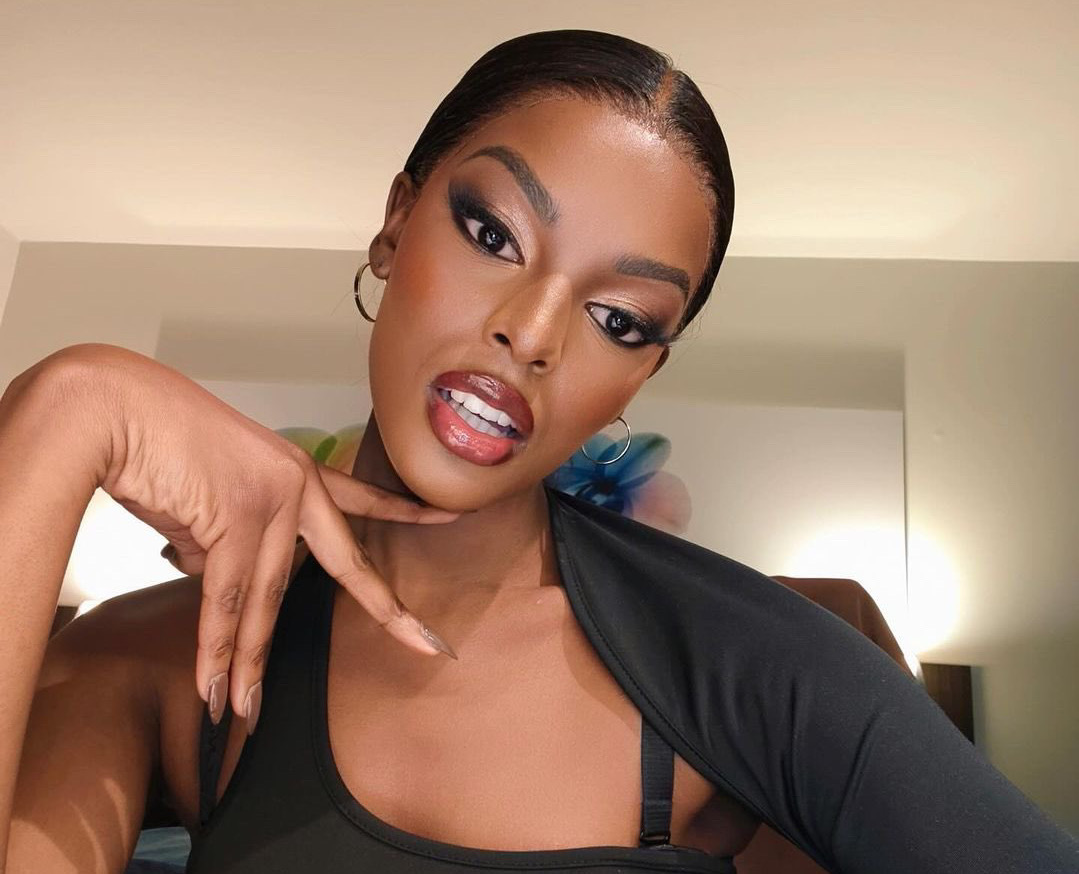
However, there is one key difference: Tyla, Charlize, and Nara are either white or biracial, whereas Chidinma is not. She is fully African, with a Mozambican mother and a Nigerian father. This stark difference points to a possible case of Afrophobia.
But there is one thing that might keep many up at night and it is the bullying that Chidimma received online. A large majority of the hate comments and allegations were Nigeriaphobic, some even calling her a criminal before an investigation was ever put forward.
Regardless of the underlying reasons, the hate directed at Chidinma was unfounded and unnecessary. Her situation highlights the urgent need for Southern Africa—and the African continent as a whole—to address and combat Afrophobia. It’s essential to foster open dialogue, promote understanding among diverse groups, and challenge xenophobic and prejudiced narratives. By hurting our fellow Africans we are only hurting ourselves in the long run because the future of a better Africa lies within unity.
Those who believe they harmed Chidinma are mistaken, because they have only given her a platform to do even greater things. Miss Universe Nigeria has even invited the former Miss South Africa finalist to their 2024 pageant. As they say when one door shuts, another opens.
So, was the backlash against Chidinma due to xenophobia, Afrophobia, or Nigeriaphobia? I’ll leave that to you to decide, leave your opinions in the comment section below.

